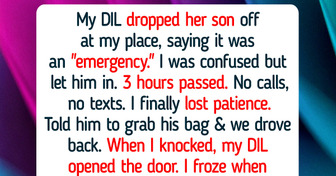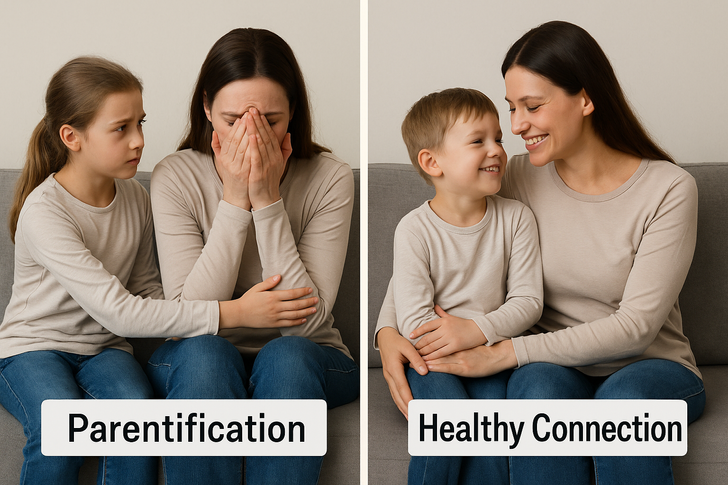The best. An eye for an eye. A teeth for a teeth. If a parent ditch you, you have full right to ditch them. All equal in this world.
I Refuse to Care for My Aging Parents—I Don’t Owe Them a Thing
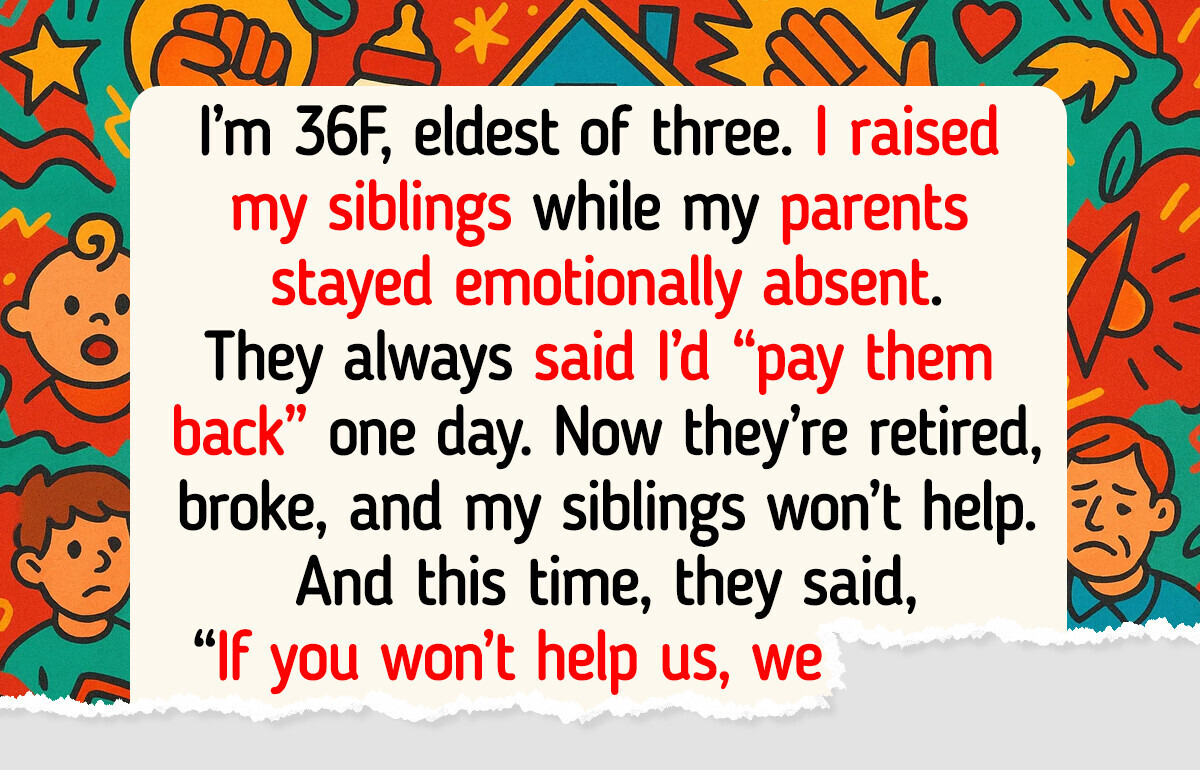
One of our readers wrote to us with a powerful, emotional story about breaking free from lifelong family expectations. After years of being the “third parent” in her household, she’s now refusing to play the caregiver role her parents assumed she’d accept without question.
Here’s her story — in her own words.

“I’m 36F, the eldest of three. Growing up, I was basically the third parent—cooking, cleaning, babysitting my siblings while my mom and dad either worked late or just didn’t feel like dealing with us.
They weren’t abusive, but they were absent. Emotionally unavailable, critical, and the kind of people who thought ‘providing a roof’ was all that parenting required.
They made it very clear that I was expected to take care of them when they got old. My parents even joked about how I’d ‘pay them back’ for raising me. That joke stopped being funny when I turned 30, and they started asking for money.
They’re both retired now and struggling financially. My siblings don’t help. So guess who they came to?
Me. The one they guilt-tripped, overworked, and took for granted my whole life.
And this time, they said, ‘If you won’t help us, we might end up homeless—and it’ll be your fault.’
I said no.
I told them plainly: I am not their retirement plan. I didn’t ask to be born, and I sure as hell didn’t agree to a lifetime debt for basic parenting. They called me ungrateful. Said I was ‘abandoning family.’
Nope. I’m just finally choosing me.
Let the golden child siblings step up—or maybe the system they ignored their whole lives. I’m done.”
Thank you for sharing with us!
What is parentification and signs of a parentified child.
Parentification happens when a child takes on adult responsibilities within the family. Experts identify two main types:
Instrumental parentification: the child handles practical tasks like cooking, cleaning, caring for siblings, managing bills, or supporting a parent with an illness or disability.
Emotional parentification: the child provides emotional support to a parent—listening to problems, offering advice, or acting as a mediator.
Parentification can also be:
Adaptive (short-term and situational)
Destructive (chronic and harmful, violating healthy family boundaries)

Get therapy, you need it. When a person lacks natural affection for their own, they need Divine intervention...very disturbing. Just remember, EVERYONE has their day including you.
And it may be parent-focused (caring for a parent) or sibling-focused (caring for siblings).
Common causes include parental illness, bad habits, mental health issues, divorce, or financial stress.
Why it matters: Chronic parentification can lead to trauma, emotional dysregulation, anxiety, depression, guilt, boundary issues, and long-term relationship struggles.
Warning signs in teens may include over-responsibility, anxiety, isolation, physical symptoms, or burnout.
The difference between parentification and healthy connection.
It’s completely normal—and even healthy—for parents to share age-appropriate emotions with their children. Kids often sense when something is wrong, and some honest communication can help them feel secure and less confused.
Likewise, children helping around the house or caring for siblings occasionally can build confidence and responsibility. But this support should never come at the cost of their emotional well-being, education, or social development.
The key difference? Healthy family dynamics don’t make children feel responsible for their parents’ happiness or the safety of the household. Parentification crosses the line when the child becomes a caregiver instead of simply being a child.
Sometimes, the relationship between a parent and child can be incredibly complex — and at times, painfully difficult.
I’m Child-Free, and My Parents Chose to Leave Their Legacy to My Cousin—So I Turned the Tables
Comments
I was getting ready to tell OP they where wrong-ish.
Then I read the article and changed my mind, OP if you read this: Do not feel guilty for having healthy boundaries!
Do not feel guilty for putting yourself first. For once in your life. Send them a list of organizations made to help them. And as you hand it to them make it clear this is the only thing you're doing for them.
Unless they deeply apologize for what they've done to you then block them. Tell them you accept it but, you're finished. Tell them they still have 3 that were treated better and might help. Might.
I always chuckle a bit when someone's argument is, "I didn't ask to be born," because they actually did. We all do. Not all of us remember that beyond toddlerhood, but we all have multiple lives and choose our parents and the situations to be born into for reasons of our own evolution. More people need to educate themselves and look at the proof of this fact. Just say you don't want to do what your parents want you to, for your own reasons, period.
I honestly couldn't even comprehend being this self-absorbed and as much as I would like to believe that she will regret her decisions when her parents are gone. I don't think that she will. There is an overabundance of adult children that have found a way to create a sense of being victimized in some way just to excuse and give reason to focus only on themselves when they think that others are not beneficial enough to use anymore. They never learned to return love and can only take.
This is actually probably the best thing for the parents, to understand exactly what she thinks of them, so they can run away fast. I would guess that she has been abusive towards them for quite awhile now and they have refused to give up hope. I truly hope that they can actually see her for what she truly is now and not the actress that she has been and can cut all ties and remove her from their lives.
What are you smoking?!
Related Reads
After My Surgery, My Sister-in-Law Shut Me Out of the Family
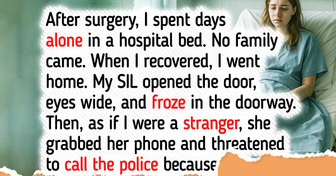
My In-Laws Begged Me to Get Back to Their Son, but I Told Them the Embarrassing Truth About Him
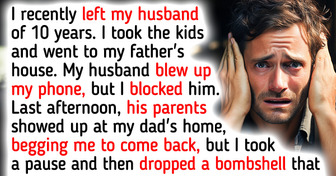
I Removed My Son From My Will—I Won't Tolerate Humiliation I Don't Deserve

I Didn’t Want My Ex’s Wife at My Son’s Graduation — The Result Was Devastating
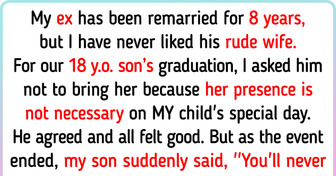
I Turned My Stepdaughter’s Room Into My Gym — It’s MY House Now
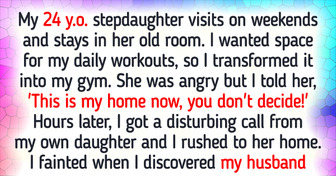
10+ True Stories With Endings No One Saw Coming
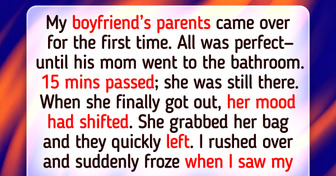
11 People Who Faced a Plot Twist Bigger Than Fiction

My Boyfriend Proposed to Me, but He Suddenly Had a Change of Heart

10+ Shocking Events That Made People Wonder If They’re in a Weird Dream

I Refuse to Let My Stepson Disrespect Me, His Arrogance Cost Him Big
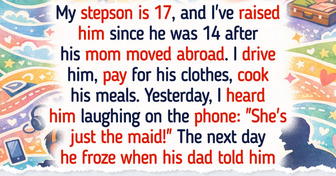
I Refused to Talk to My Parents After They Chose My Ex-Wife Over Me

15 Quiet Moments of Kindness That Made the Biggest Impact
